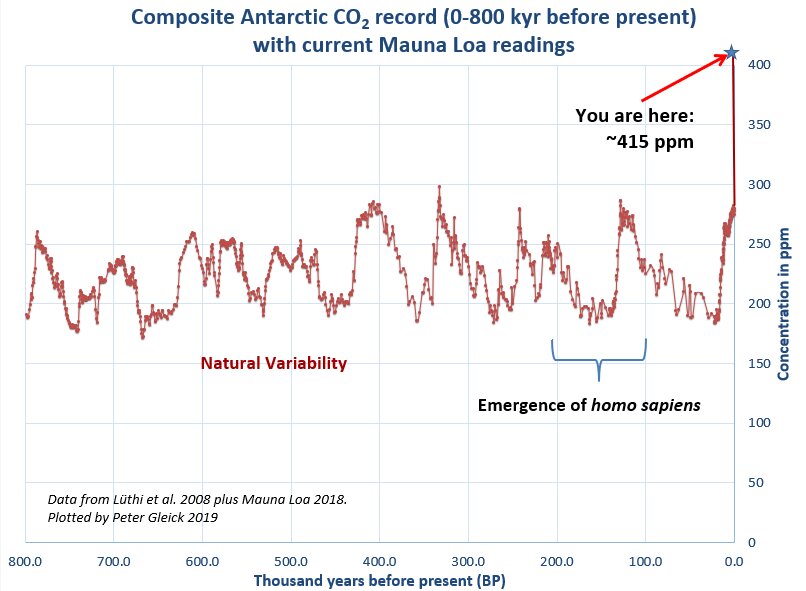Biodiversity & Environment
CO2 Level Hit Record High
- 14 May 2019
- 4 min read
Recently, the Mauna Loa Observatory in Hawaii (USA), has detected the highest levels of planet-warming carbon dioxide in Earth's atmosphere since records began.
Key points
- The CO2 level, detected by the observatory, was more than 415 Parts Per Million (PPM).
- The last time Earth's atmosphere contained this much CO2 was more than three million years ago when global sea levels were several metres higher and parts of Antarctica were covered in forest.
- Earth's average surface temperature has already increased 1°C since pre-industrial times due to man-made emissions and, in spite of the Paris deal and increasing public awareness of the problem, we haven’t succeeded in arresting Carbon emissions.
- In 2018, the Intergovernmental Panel on Climate Change (IPCC), reported that at the current rate of emissions, the world will breach the global warming limit of 1.5°C between 2030 and 2052 and that will have a catastrophic impact on the earth.
Paris Agreement on Climate Change
- Paris Agreement was concluded at the United Nations Climate Change Conference (UNFCCC), COP 21 that was held in Paris in 2015, which was also the 11th session of the Meeting of the Parties to the 1997 Kyoto Protocol (CMP 11).
- The Paris Agreement's aim is to keep the global temperature rise well below 2 degrees Celsius above pre-industrial levels and to pursue efforts to limit the temperature increase even further to 1.5 degrees Celsius.
- The Paris Agreement requires all Parties to put forward their best efforts through “intended nationally determined contributions” (INDCs) and to strengthen these efforts in the years ahead.
- The Paris Agreement, in contrast with the 1997 Kyoto Protocol, makes all countries responsible for reducing GreenHouse Gases (GHGs) instead of just the developed or Annex-1 countries, which are responsible for the bulk of the total GHG concentrations in the atmosphere.
India’s Intended Nationally Determined Contributions (INDCs)
- To reduce the emissions intensity of its GDP by 33 to 35% by 2030 from 2005 level.
- To achieve about 40% cumulative electric power installed capacity from non-fossil fuel based energy resources by 2030, with the help of transfer of technology and low-cost international finance, including from Green Climate Fund.
- To create an additional carbon sink of 2.5 to 3 billion tonnes of CO2 equivalent through additional forest and tree cover by 2030.
Intergovernmental Panel on Climate Change (IPCC)
- The Intergovernmental Panel on Climate Change (IPCC) is the international body that provides policymakers with regular assessments of the scientific basis of climate change, its impacts and future risks, and options for adaptation and mitigation.
- It was set up in 1988 by the World Meteorological Organization (WMO) and the United Nations Environment Programme (UNEP).
- Headquarters: Geneva, Switzerland





